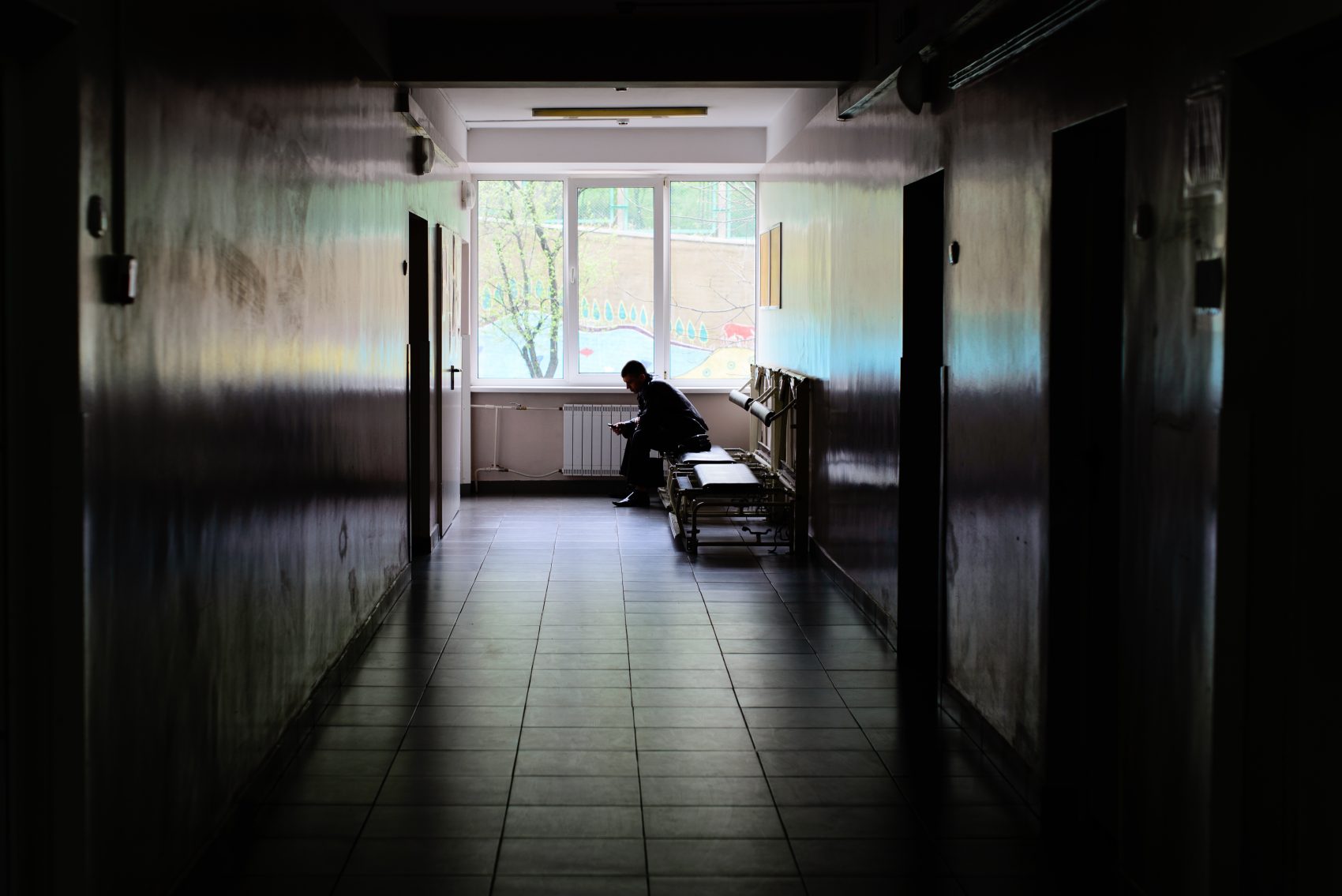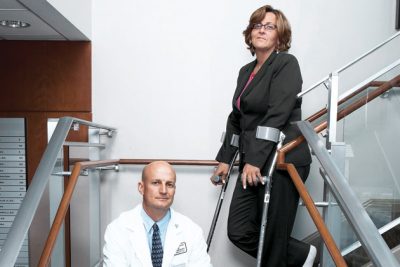Advertisement
The Patient
Resume
It was 1999, and Dr. Rick van Pelt was an anesthesiologist in his mid-30s, when he met a patient named Linda Kenney.
“She was basically a really healthy young woman, a mother of three,” Rick remembers. “Really her only problem being her feet.”
The woman was born with clubfeet, each foot twisted out of shape, and this would be surgery No. 20. It was a straightforward ankle replacement, and Rick wanted to use a local anesthetic, a nerve block injected behind the knee, but the woman said she’d had bad experiences with local anesthetics before.
“She was initially very resistant, and I said, you know, this is something we do all the time,” Rick says.
So the 37-year-old patient agreed, and Rick found the nerve and injected the nerve block. That’s when the patient started acting strange.

“Squirming in the bed, kind of moving irregularly and talking non-sensibly. There were just words coming out and sounds coming out that were incoherent, and within probably seconds of that, her whole body started to convulse.”
The anesthetic Rick injected had gotten into the blood stream -- potentially fatal.
“It happened so fast,” he says. “All of the sudden she was just motionless in the bed. Her heart just stopped.”
By then, a team surrounded the bed.
“She was getting shocked, she was being ventilated, she was getting medications, and her heartbeat wasn’t coming back. We’re doing everything we can, and we’re not getting her back, and this is really bad. She could die. ... What did I just do?”
They rushed her to a cardiac suite across the hall, cracked open her chest, and pumped her heart by hand.
Rick just watched, and his colleagues inched away as though he were toxic, avoiding his eyes. No one would talk to him. Finally they got a heartbeat, and the big question was brain damage. Rick went to talk to the patient’s husband. He found him in the waiting room, pacing.
“I opened the door, and he stopped. He looked at me and just came at me, screaming, ‘What did you do to my wife?’ Like he was gonna beat the crap out of me.”
A doctor stepped between them, and then there was nothing left for Rick to do but go home.
When Linda Kenney opened her eyes, she didn’t have brain damage. She did have a scar, broken ribs and a terrified family.
“When I first woke up, I had tubes coming from everywhere,” she says. “My husband was crying. I couldn’t even comprehend what was going on.”
It would take her quite some time to recover from her open heart surgery, but even greater was the emotional toll. She didn’t realize it until the death of a friend’s 13-year-old daughter.
“I felt so guilty. How come I got to live and she didn't? That's when I started to kind of fall apart. That's when it all started to come apart.”
Linda struggled to cope with the near-death experience. She didn’t know that the doctor who’d given her that nerve block was struggling, too.
“I was sort of in this state of total mental chaos,” Rick says. “I had this knot in my stomach that I was walking around with.”
No one would talk to Rick about what happened, partly from fear of being subpoenaed, so he hid his emotions — until he just couldn’t anymore.
“There was this incredible peace that had all the sudden come through,” he says.
“I’m going to get sued, but I’m going to do the right thing.”
Against all advice, Rick wrote Linda a letter. He said he was sorry, that he didn’t expect a response, but he was there if she wanted to talk.
Linda wasn’t ready. Her friends were encouraging her to sue, but her mind was elsewhere.
“I kept thinking if I feel this bad, how must he be feeling?” Linda says. “He held the needle that day.”
Rick had moved from Boston to Seattle by the time he got the call from Linda six months later. “How are you feeling?” Linda asked — the first person to ask him that.
“And she really said, ‘I forgive you for what happened,’ ” Rick says. “It was like the 800-pound gorilla jumped off my back. All of the sudden I was I was free. I had my life back.”
Finally, he could forgive himself.
When Rick moved back to Boston, he and Linda got coffee, and Linda explained her side of the story: how she’d felt cut off from hospital communication, how no one would talk to her, either. They’d both been isolated.
“All of a sudden, the issue escalated from the two of us to, this is just wrong,” Rick says. “We're going to take this on. I don’t know how, but this is bigger than the two of us.”
Linda told Rick she wanted to start an organization that focused on the effects of medical error. Their idea was that both patients and doctors needed more support after experiences like Linda’s. They called it Medically Induced Trauma Support Services.
Soon Rick and Linda were making the rounds at hospitals. After they gave their presentations, Linda remembers older doctors lining up to talk with her, each with a story like Rick and Linda’s that they’d kept to themselves for years. Patients and clinicians alike started calling Linda for help, and the patient who’d never finished college was advising and comforting doctors.
Over the past 15 years, she and Rick have piloted patient therapy groups and convinced hospitals across the country to develop peer support. They’ve seen real progress, but for Rick, the biggest change was personal.
“The years of training, the medical experience, actually trained the compassion out of me. It just over time wore me down, and I was a good clinician, but I was not a person. I was not a human being. I think this restored my humanity.
At the end, he says, it all came down to compassion.
Find Kind World on Facebook or Twitter, or email kindworld@wbur.org to share your story.
You can also subscribe to the podcast.
This segment aired on August 15, 2017.
